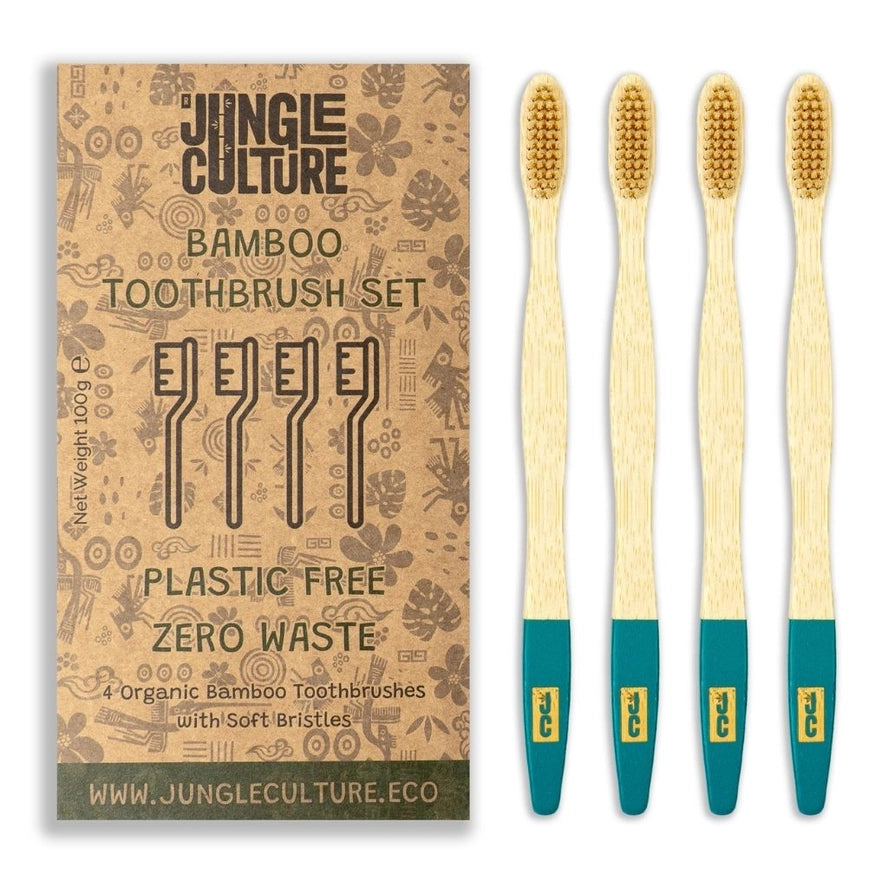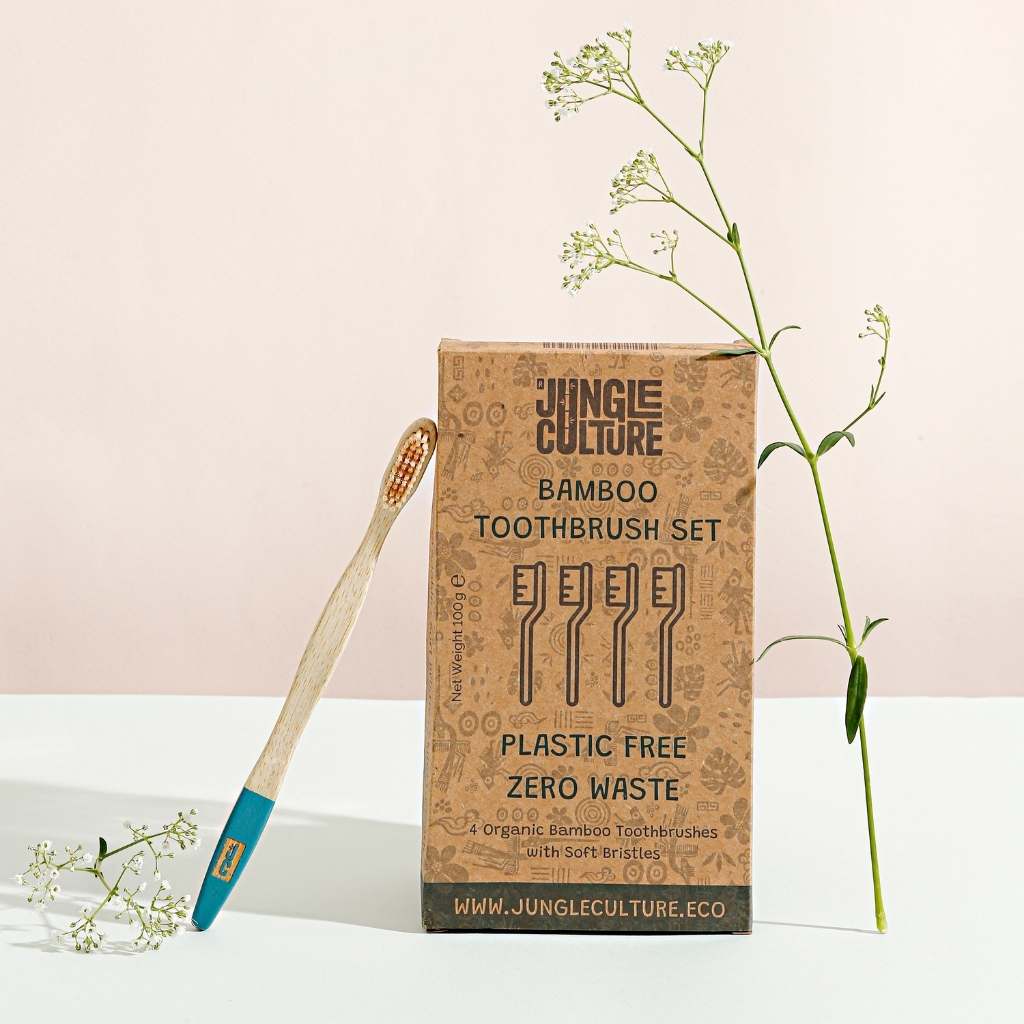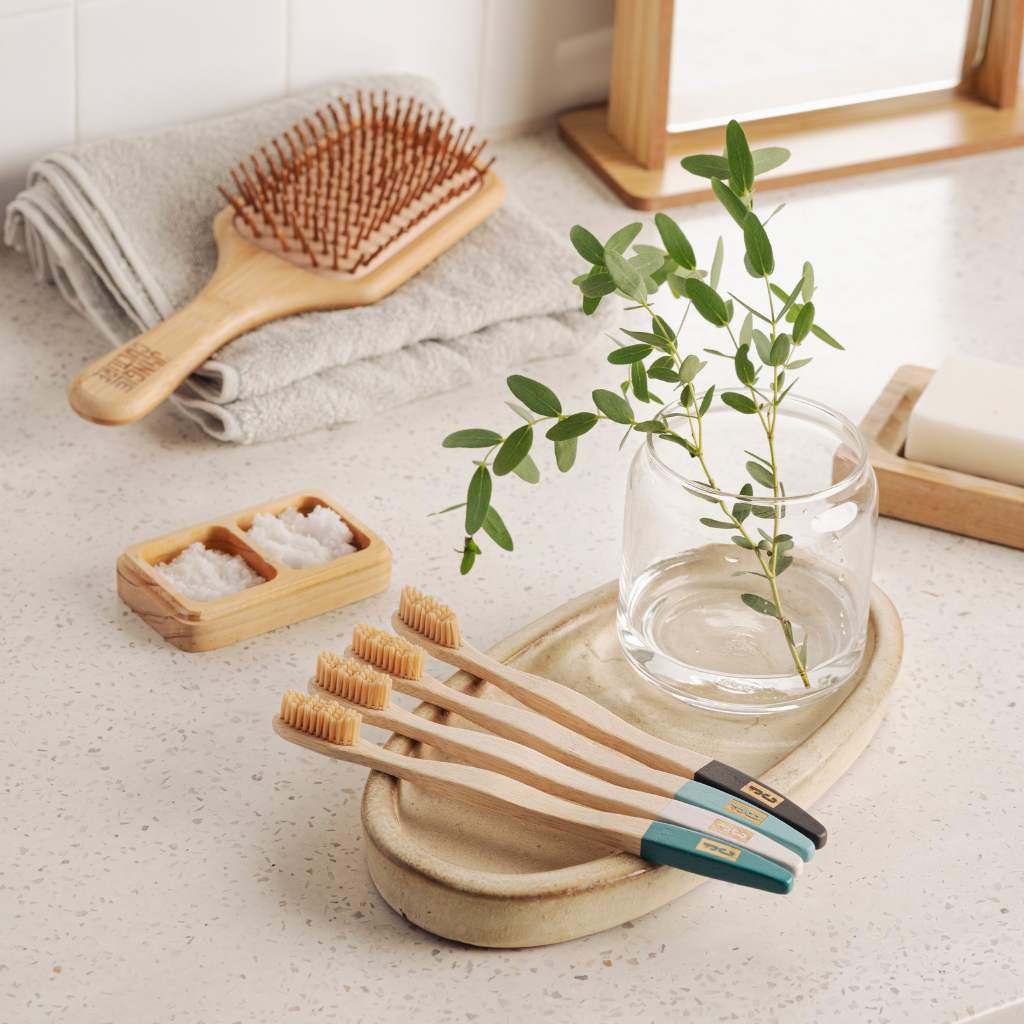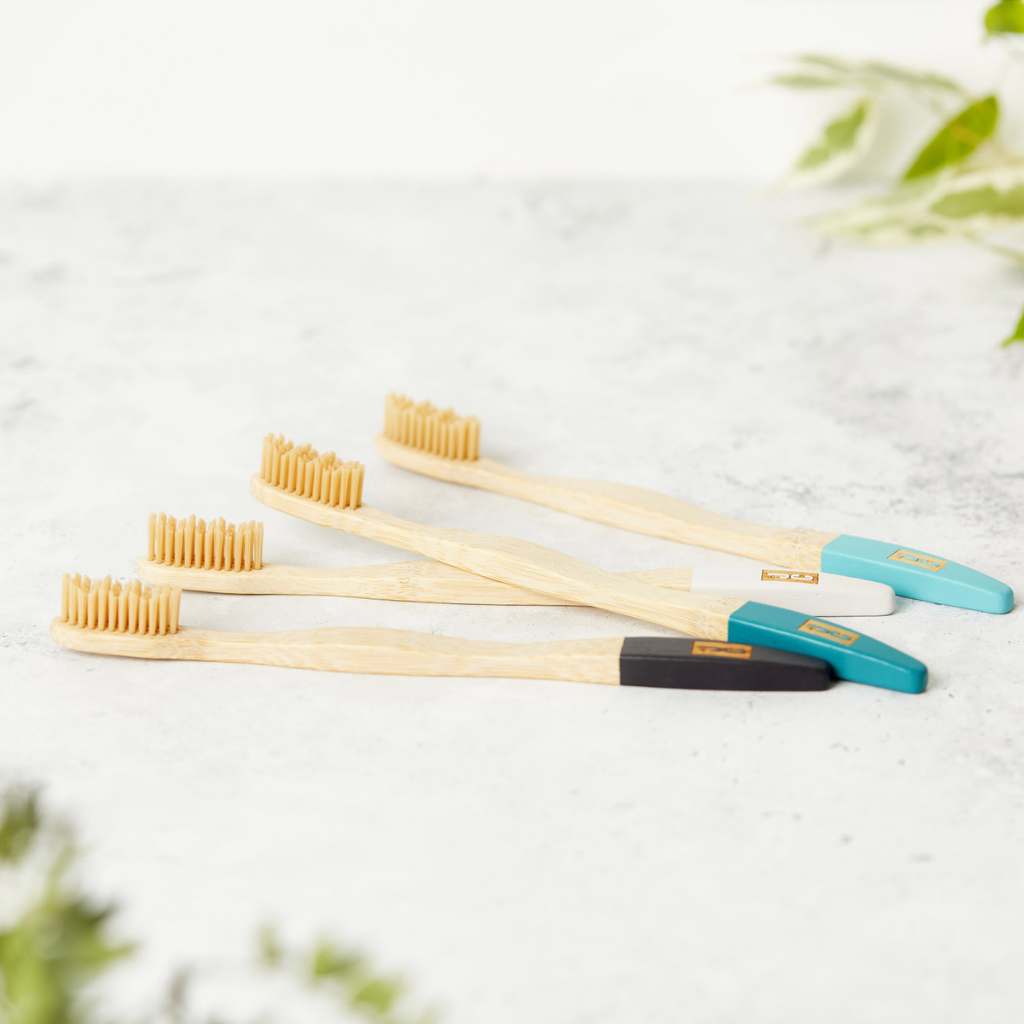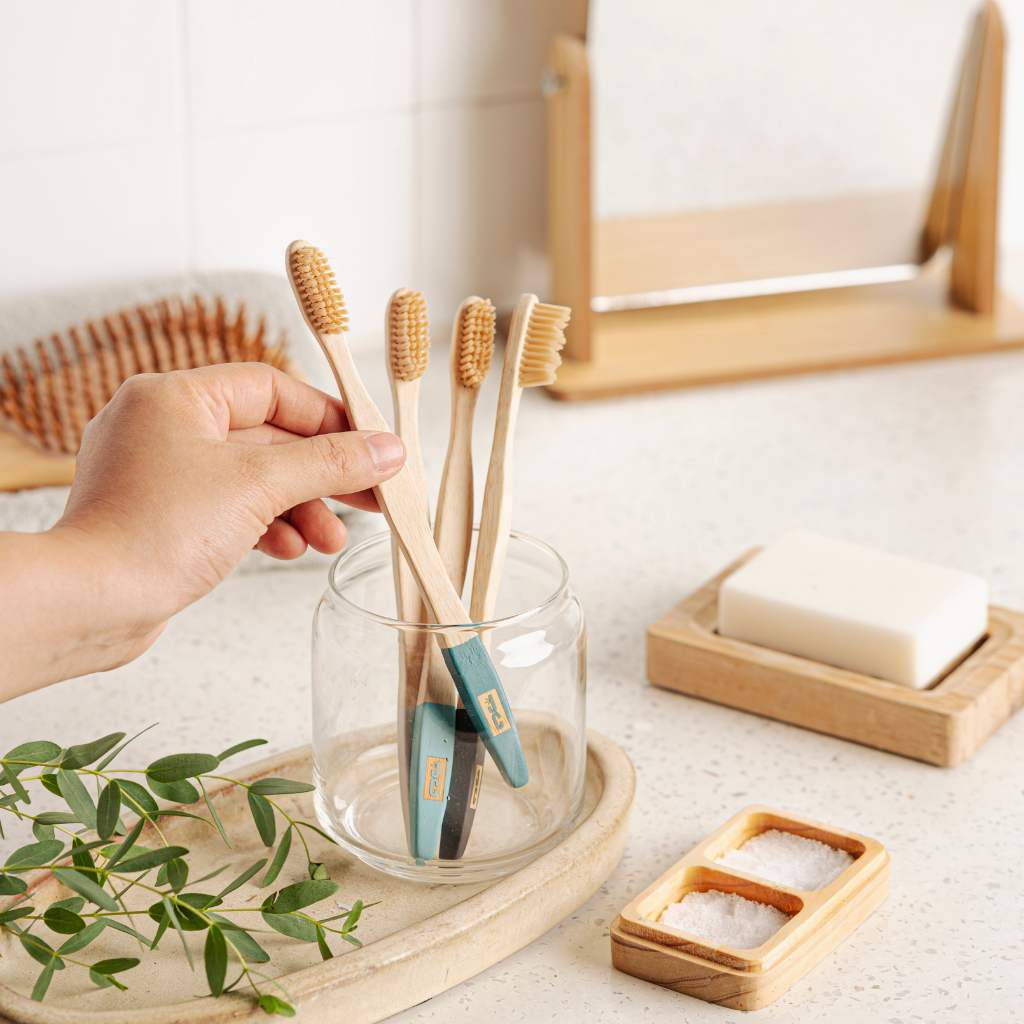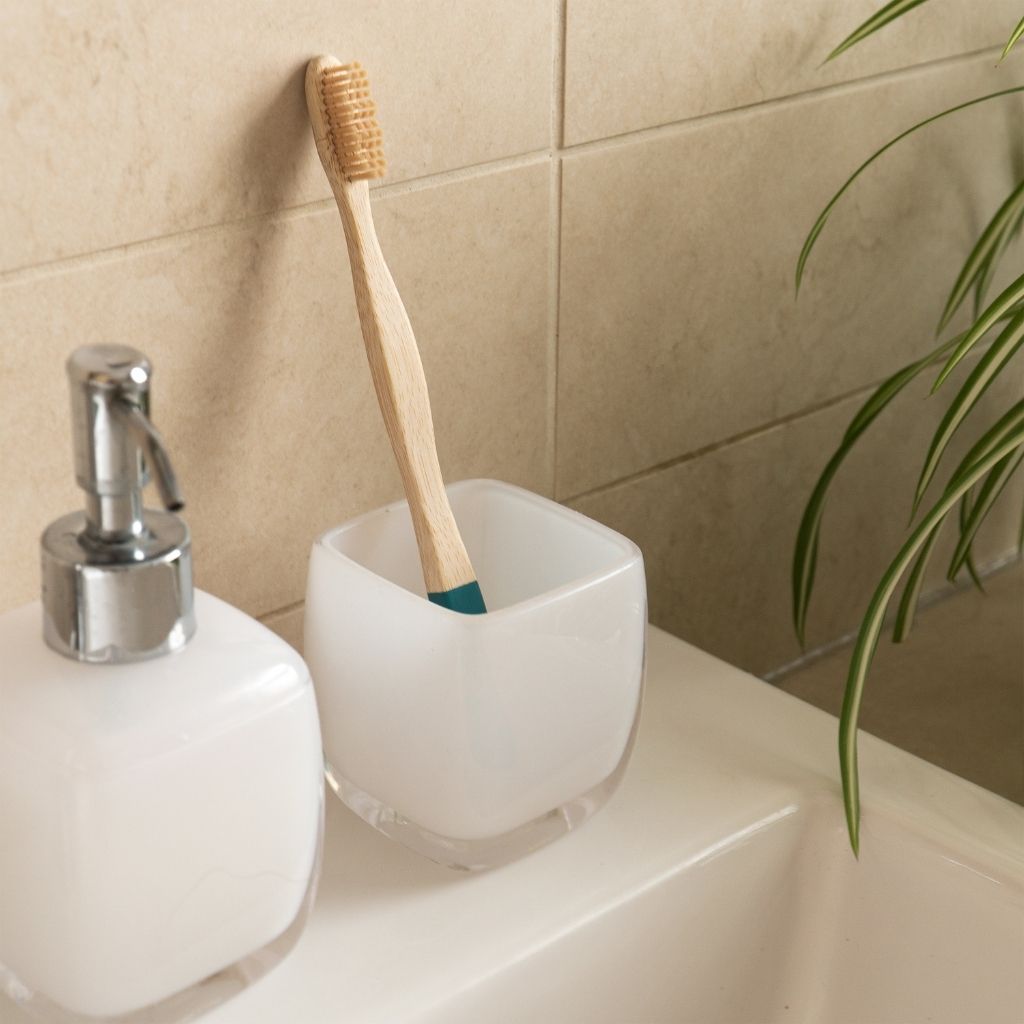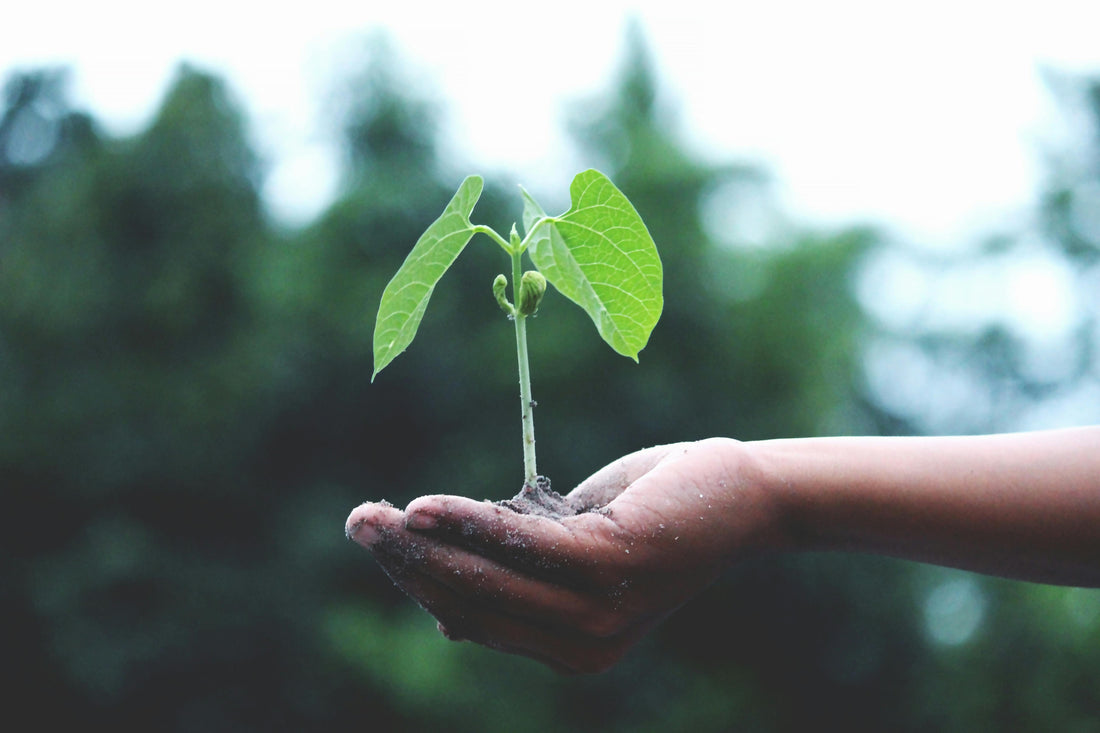
Why Zero Waste? The Impact of a Sustainable Lifestyle
Share
Recently I was walking through a beautiful nature reserve. The trees, the peace, the fresh air… it felt like I could escape the hustle and bustle of everyday life for a while. Until I suddenly saw something that didn’t fit into that picture: a plastic bottle, half-buried in the mud. It frustrated me. How often do I see this? Plastic in nature, on the streets, in the oceans. And then I thought: what if that plastic ends up on my plate again? Via the fish I eat, or even via the water I drink? That got me thinking.
I decided to look into it and discovered something that really struck me: we can do something about this. Not just by getting angry, but by making small changes in our daily lives. A zero waste lifestyle, for example. But why would you do that? Isn’t it complicated, expensive and time-consuming? And does it really matter if I produce less waste?
Let me tell you what I discovered. It’s easier than you think, it saves you money, and it really makes a difference. Curious? Read on.
The problem: plastic pollution and waste
Have you ever stopped to think about how much plastic you use every day? I hadn’t. Until I started paying attention to what I was throwing away. Plastic packaging, coffee cups, shopping bags, straws… it was piling up. And the worst part? This stuff doesn’t just disappear. A plastic bottle can remain lying around for up to 450 years . That means the bottle you throw away today could still be there hundreds of years from now.
And where does that plastic end up? In the oceans. Animals accidentally eat it or get entangled in it. Eventually, it ends up back with us through the food chain. Crazy, right? But it’s not just plastic. Our waste production is growing enormously. Think of all the packaging you throw away after a day of shopping. It may seem harmless, but it has serious consequences:
- For nature: Forests, oceans and rivers are becoming polluted.
- For animals: They eat plastic or get entangled in it, causing illness or even death.
- For our health: Microplastics and toxins from waste end up in our drinking water and food.
- For the climate: Waste production and processing cause enormous CO₂ emissions.
I always thought this was a problem for big companies and governments. But when I looked into it, I realized: we as consumers play a huge role in this too. And the good news? We can do something about it together.

The benefits of a zero waste lifestyle
Let's talk about what is possible. Because a zero waste lifestyle brings a lot of benefits. Not only for the environment, but also for you personally.
1. You really help the environment
Every time you choose a reusable alternative, like a sustainable shaving kit, you reduce the amount of waste that ends up in landfills and the ocean. Less plastic means less pollution and a healthier planet.
2. You save money
Think of all the disposable products you buy over and over again: plastic bags, coffee cups, straws, water bottles… By investing in reusable alternatives, such as bamboo straws or a shopping bag, you will save a lot of money in the long run.
3. A healthier lifestyle
Many zero waste products are made from natural materials and do not contain any harmful chemicals. Think of shampoo bars without microplastics or glass storage containers instead of plastic containers with plasticizers. Less toxins = better for your health!
4. Less clutter in the house
Less waste means less mess. By bringing less disposable packaging and plastic junk into your home, you ensure a tidy and organized living environment.
5. You inspire others
When you start living more consciously yourself, you automatically inspire others to do the same. Your friends, family or colleagues will see that zero waste is actually not that difficult. In this way, you make a bigger difference than you think.
How do you get started with zero waste without stress?
I can hear you thinking: "Great, but how do I start?" It may sound like a big change, but nothing could be further from the truth. You don't have to do everything perfectly at once! Small steps already make a big difference.
Don't make it too big
You don’t have to throw away all your plastic packaging and change your entire life right away. Start with simple, low-threshold changes like:
- Bring a reusable water bottle and coffee cup.
- Use cotton bags when shopping.
- Choose loose fruit and vegetables instead of packaged varieties.
- Switch to reusable cotton pads or a bamboo toothbrush .
Minimalism: less stuff, more peace
I discovered that minimalism and zero waste go hand in hand. We often own more stuff than we need, which leads to waste and unnecessary stress. With every purchase, ask yourself: do I really need this? By choosing quality and functionality, you create a calm, organized and more sustainable living environment.
Reduce food waste
Did you know that a third of all food produced worldwide is wasted? This is not only a waste of food, but also of the energy, water and labour that are needed to produce it. Fortunately, you can do something about this yourself:
- Plan your meals and only buy what you need.
- Save leftovers and incorporate them into a new meal.
- Choose local and seasonal foods.
Buy consciously and responsibly
Our consumer society constantly tempts us to buy new things. But the production of clothing, electronics and other products requires enormous amounts of raw materials, water and energy. By consuming more consciously, you can make a big difference:
- Choose quality over quantity.
- Buy secondhand, from clothes to furniture.
- Repair things instead of replacing them right away.
The Biggest Misconceptions About Sustainable Living
Sustainable living often comes with certain preconceptions that put people off before they even try. But many of these beliefs are simply not true. Here are some of the most common misconceptions and why they’re wrong:
-
“Sustainable living is too expensive”
Many people think that a green lifestyle means that you only have to buy organic, expensive products. In reality, you save money by consuming less, using reusable alternatives and being more conscious about energy and food. Second-hand clothing, homemade cleaning products and less food waste are actually cost-saving. -
“It's too complicated and time-consuming”
Sustainable living doesn’t have to be a huge life change. Small adjustments, like bringing a reusable bag or using your own coffee cup, are a good start. Many habits may require a small shift, but eventually they will become as natural as what you did before. -
“My contribution doesn't make any difference anyway”
This is one of the most demotivating misconceptions. But change always starts with individuals. Companies and policymakers respond to consumer behavior, and the more people consciously choose more sustainable alternatives, the greater the impact. Moreover, you inspire others, which spreads the effect further.
Sustaining Zero Waste in the long term
Taking the first steps is one thing, but how do you make sure you stick with these new habits? The secret lies in small but lasting changes. Give yourself the space to experiment and discover what suits you best.
- Stay informed: Follow blogs, documentaries and social media accounts about sustainability.
- Reward yourself: Celebrate small successes, like not buying plastic bottles for a month.
- Find like-minded people: Join a zero waste community for tips and motivation.
- Don't be too hard on yourself: Sometimes things go wrong, and that's okay! It's about conscious choices, not perfection.
Your impact starts today
Zero waste living may seem like a challenge, but it's all about conscious choices and small steps. By using reusable alternatives, reducing food waste and consuming more consciously, you contribute to a more sustainable world.
The main take aways:
- Everyone can contribute: You don't have to be perfect, but every small step counts.
- Sustainable living saves money: Reusable products last longer and save you a lot of money in the long run.
- Health and the environment go hand in hand: Less plastic and chemicals means a cleaner environment and a healthier lifestyle.
- Together we make an impact: The more people make conscious choices, the greater the impact on companies and policymakers.
The most important thing is to start. Whether that’s with a reusable water bottle, eating less meat or shopping more consciously, every step counts. Sustainability is not an all-or-nothing choice, but a journey. What will be your first step?


